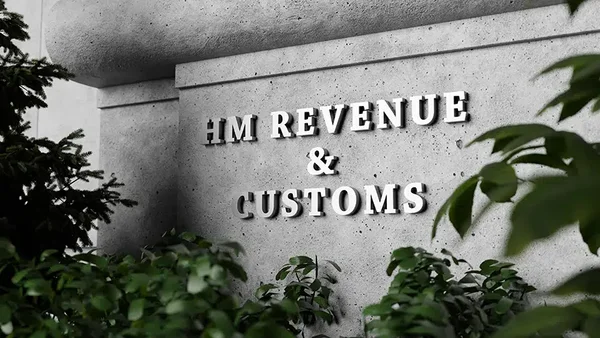Understanding Jury Duty Exemptions for the Self-Employed

Opting out of jury duty due to self-employment can be a necessity for many small business owners and freelancers. The judiciary recognises that self-employed individuals face unique challenges that can make fulfilling jury duties particularly burdensome. This article explores the criteria for opting out, the process involved, and offers tips for managing your obligations efficiently.
Understanding the process of exemption is crucial. The UK legal system does allow for some flexibility, but it’s essential to know how and when to apply for an exemption. For the self-employed, the loss of business during the jury service period could have significant financial repercussions, making it a valid reason to request an exemption.
Being knowledgeable about the necessary documentation and procedures can save time and reduce stress. Using tools like the Pie Tax app, which provides expert tax assistance, can help you manage these responsibilities more effectively, ensuring you maintain your business’s financial health while complying with legal mandates.
Criteria for Exemption
To opt out of jury duty due to self-employment, you must demonstrate that your absence would cause significant hardship. This involves providing evidence of your business's reliance on your daily operations and income.


The Application Process
The application process to opt out of jury duty is straightforward but requires precision. You need to fill out the Jury Summons Response Form, detailing your self-employment situation and attaching supporting documents.

A 2019 survey revealed that 60% of self-employed individuals suffered financially due to jury duty. This statistic underscores the importance of understanding your exemption rights. Financial Impact

Typically, jury duty lasts around 10 days. For self-employed people, this period can result in significant financial losses, thereby warranting an exemption request.Duration of Jury Service

Preparing Your Exemption Request
Drafting a well-prepared exemption request is essential for increasing the likelihood of approval. Firstly, detailed documentation of how jury duty will impact your business operations is crucial. This might include financial statements, client contracts, and an explanation of your work's nature. This evidence demonstrates to the court the direct correlation between your absence and the potential financial detriment to your business.
Secondly, a clear and concise cover letter explaining your self-employed status, the scope of your work, and the inability to delegate tasks can strengthen your application. Highlight your commitment to civic duties while justifying your request for exemption based on practical and financial grounds.
Alternative Solutions if Not Exempted
If your initial exemption request is denied, consider requesting a deferment. Deferment allows you to postpone your jury duty to a more convenient time. This option can provide some relief, enabling you to plan around your business obligations better.
Additionally, exploring the possibility of shorter, part-time jury service could be beneficial. Part-time service or a split schedule can allow you to fulfil your civic duties without completely halting your business operations. Knowing these alternatives helps you stay prepared and maintain your income stability during the jury service period.

Top Tips for Jury Service

Request a Deferral If jury duty conflicts with your work, you can request a deferral. Explain the impact on your business and provide supporting documents.

Submit a Financial Hardship Claim You may be excused from jury duty if it causes financial hardship. Demonstrate how your absence will affect your income and business stability.

Plan Ahead for Time Off If you must serve, plan your workload in advance. Notify clients and reschedule projects to ensure minimal disruption to your self-employment.

Fun Facts
Did you know that in the UK, you can be called for jury duty once every two years? However, being self-employed and proving financial distress due to jury service can exempt you, balancing your civic and professional duties.
Handling Jury Duty Summons

Receiving a jury duty summons can be daunting for the self-employed. The first step is not to panic but to understand your rights and responsibilities. Carefully read through the summons, noting important dates and required actions.
Start gathering documents that support your exemption claim immediately. Collect income statements, client contracts, and any other relevant financial documents. Submitting a detailed and well-organised application increases your chances of a successful exemption. If you need further assistance, the Pie Tax app offers expert tax assistants who can guide you through this process efficiently.

Prepare and submit a detailed cover letter and supporting documents. Highlight the potential financial impact on your business due to jury duty to make a compelling case for exemption.Documentation Required

If exemption isn't granted, file for a deferment by specifying a more suitable time for jury service. This approach can help in managing your business commitments without severe financial repercussions. Deferment Request
Summary
Opting out of jury duty due to self-employment is a process that requires careful documentation and understanding of your rights. By preparing a detailed and compelling exemption request, you can mitigate the financial impact on your business. Utilising resources such as the Pie Tax app can streamline this process, providing you with essential tools and expert assistance.
In conclusion, while fulfilling civic duties is important, it should not come at the expense of your livelihood. By understanding the exemption criteria and knowing how to present your case effectively, you can balance both responsibilities. If denied, exploring deferment options or alternative solutions can provide the necessary flexibility to maintain your business stability. Always seek professional guidance, especially in complex cases, to ensure your self-employment status is rightly considered by the court.
Frequently Asked Questions
Can all self-employed individuals apply for jury duty exemption?
Yes, all self-employed individuals can apply for exemption if they can demonstrate that jury duty would cause significant financial or operational hardship.
What documents are needed for an exemption request?
Necessary documents include financial statements, client contracts, and a detailed cover letter explaining your business operations and the impact of your absence.
How long does it take to receive a decision on an exemption request?
The decision time frame varies but typically takes a few weeks. It’s advised to submit your request as soon as you receive the jury summons.
What should I do if my exemption request is denied?
If denied, you can request a deferment to postpone your jury service to a more convenient time. This ensures you can plan around your business obligations.
How does the Pie Tax app assist self-employed individuals?
The Pie Tax app offers expert tax assistance, helping you manage and organise essential financial documents. This support can be invaluable when applying for jury duty exemptions or deferments.











